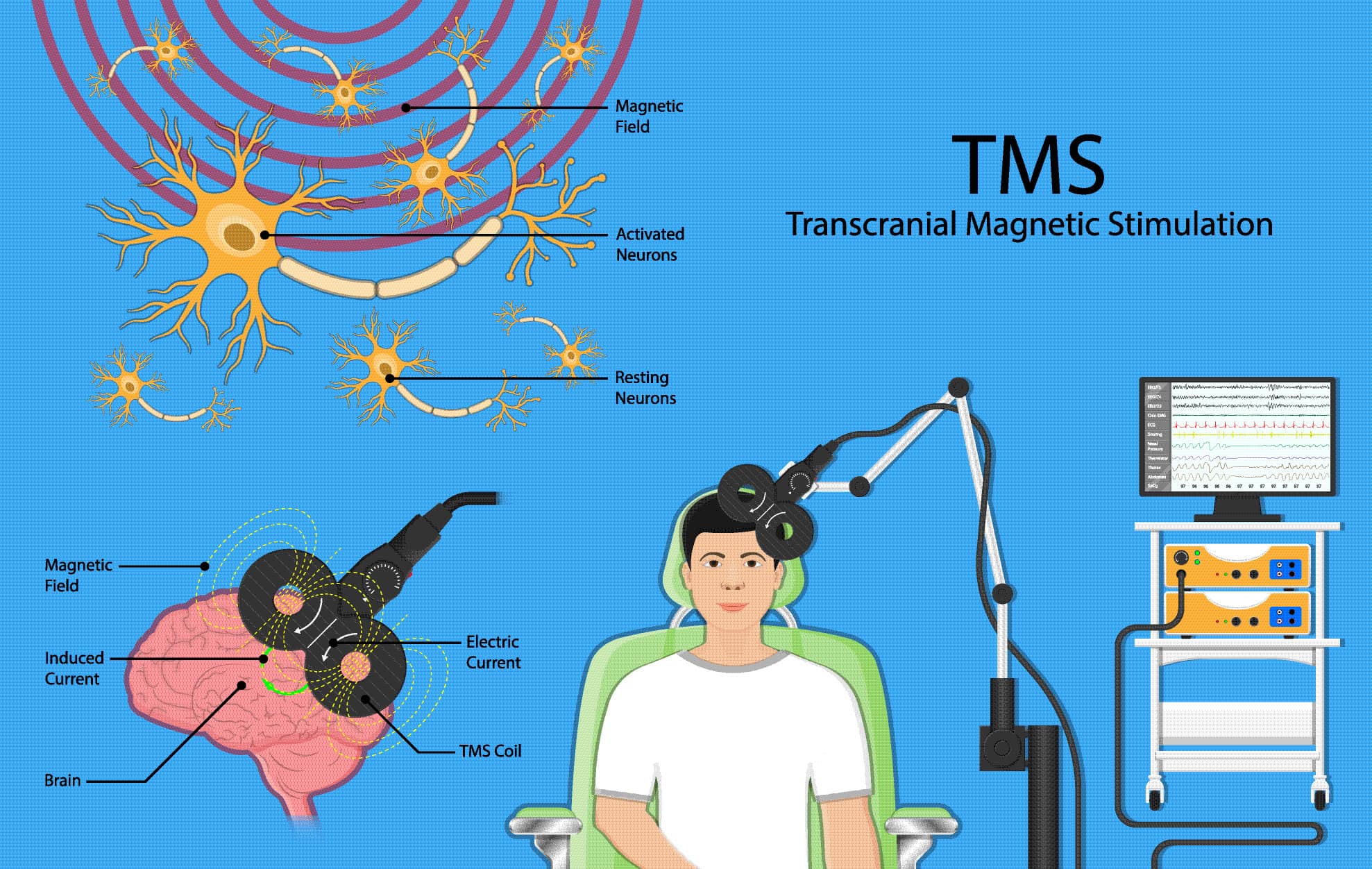What is Neurostimulation Therapy?
What is Neurostimulation Therapy?
Neurostimulation, also known as brain stimulation, is a medical technique involving the use of electrical currents to affect the nervous system in order to treat a number of neurological disorders as well as chronic pain. It can be invasive or non-invasive. At Mind Connections Specialist Health Services Norwest and Carlingford, we practise the non-invasive methods known as tDCS and rTMS.
tDCS stands for Transcranial Direct-Current Stimulation and is a form of neurostimulation that uses a continuous low direct current delivered through electrodes on the scalp to positively alter brain activity. rTMS stands for Repetitive Transcranial Magnetic Stimulation and is a form of neurostimulation that uses a magnetic coil connected to the scalp to generate tiny electric currents that activate brain cells which promote healing.
This blog entry will focus on the transcranial magnetic stimulation (TMS) method.
Who Will Benefit from TMS Therapy?
Transcranial magnetic stimulation therapy is aimed at those with depressive disorder or obsessive-compulsive disorder (OCD). Specifically, patients who have failed to respond to antidepressant medications, prefer not to take them or cannot tolerate the side effects. The decision to undergo TMS therapy must be arrived at in consultation with your specialist and will require a psychiatric evaluation.
Suitable candidates for this form of neurostimulation therapy will be encouraged to hear that there is significant evidence as to its effectiveness. Studies have shown that more than half of patients with depressive disorder who did not benefit from antidepressant medications did benefit from TMS – with a third of them achieving full remission.
As well as Australia, TMS is an increasingly popular treatment for depression in the US, UK, Canada, Israel and other countries.
What Does TMS Therapy Involve?
A previously stated, a magnetic coil is placed next to the patient’s scalp. The procedure is not unpleasant. The patient lies back in a recliner chair, with ear coverings to block out the noise of the machine (they may hear a soft clicking sound). The tiny electric currents generated by the magnetic field only result in a tapping sensation on the scalp. There is a staff member present at all times who can stop the procedure if the patient is feeling uncomfortable for any reason. It takes 10-30 minutes and does not necessitate a recovery period, i.e. the patient is free to go about their day afterwards.
The possible side effects of TMS tend to be mild and will be outlined in detail before the actual TMS sessions commence. This type of neurostimulation therapy was approved by the Department of Health back in 2015 as a safe, effective treatment for depression.
Is it Expensive? Is there TMS Bulk Billing?
Transcranial magnetic stimulation therapy consists of a pre-TMS assessment (physical and psychiatric) to verify the patient’s suitability for the treatment, followed by 20-30 TMS sessions over consecutive weekdays, and with a progress review every 10 days.
However, as of November this year, the TMS sessions WILL be covered by Medicare for eligible patients with diagnosed medication-resistant major depressive disorder. If they are over the age of 18, have tried at least two classes of antidepressants without success, remain unwell and have not received rTMS therapy previously, they will be able to claim rebates for up to 30 sessions. Those who initially recover only to suffer a relapse will be able to claim rebates for an additional 15 sessions.
Furthermore, some third parties such as private health insurers are now also covering the cost of the treatment, so this is definitely worth checking into.
However, there are overhead cost involved for expensive medical devices and the employment of experienced staff to deliver rtms therapy . Please ring our practice staff to find out more about fees and they are affordable.
Where Can I Find a TMS Clinic?
Mind Connections Specialist Health Services – a team of committed, caring, multilingual experts in psychiatry, psychology, children’s psychiatry and geriatrics – has two Sydney practices, in Carlingford and Norwest (Bella Vista). Contact the former by emailing or phoning (02) 9871 7777. Contact the latter by emailing or phoning (02) 8883 1173. Alternatively, you can get in touch via the form on this website.
